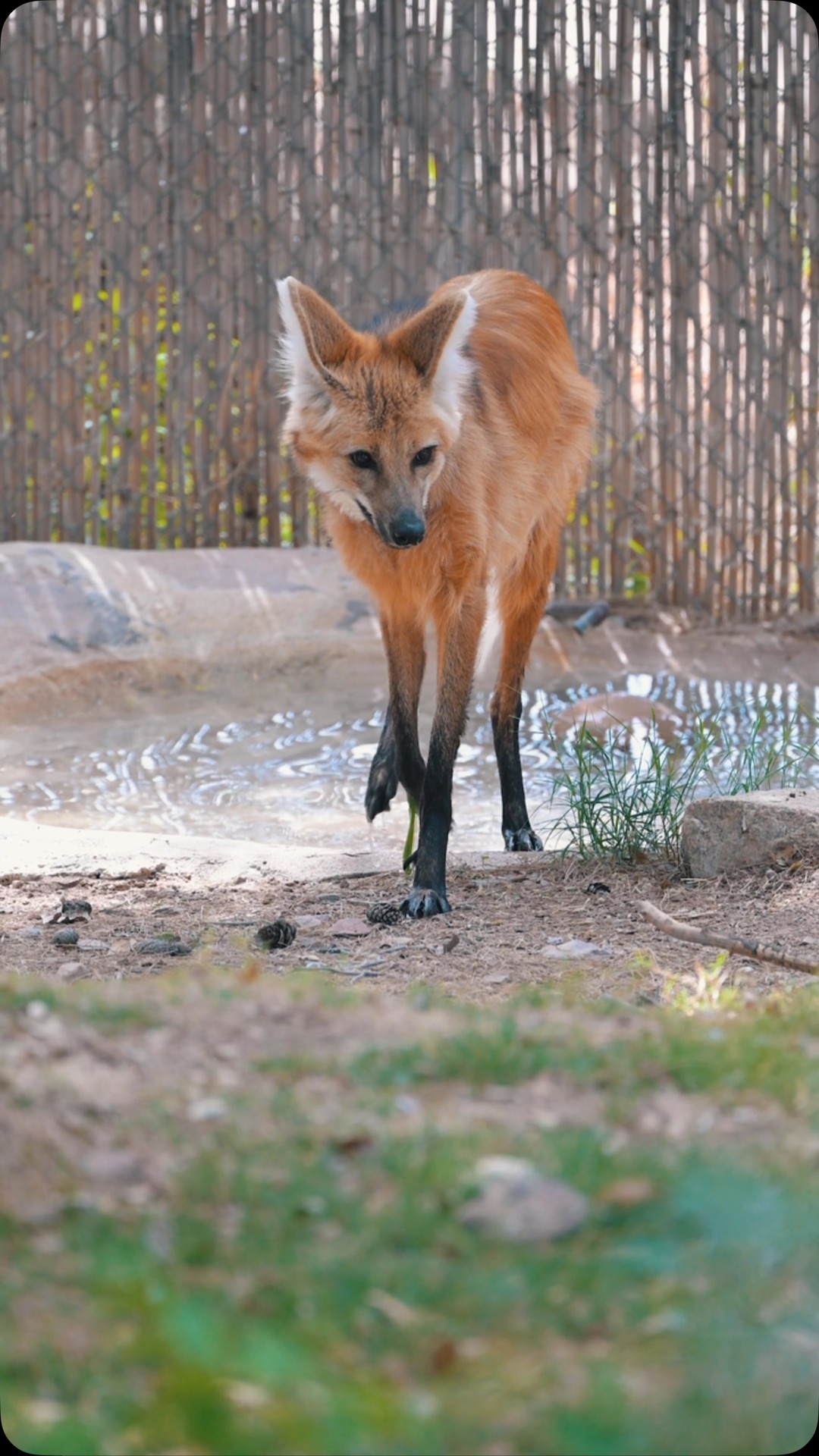- The maned wolf’s unique place in the animal kingdom and its distinct genetic characteristics distinguish it from other canids.
- Jessie’s living habitat and role at the Phoenix Zoo highlight the importance of education and conservation efforts.
- Behavioral and physiological traits of the maned wolf, including its diet and reproductive habits, contribute to its survival and ecological role.
- Challenges and conservation strategies related to the maned wolf emphasize the need for sustainable practices and protective measures.
Meet Jessie, our charismatic resident at the Phoenix Zoo, a true ambassador for an enigmatic species—the maned wolf. Standing tall on long, slender legs and boasting a striking appearance that might remind you of a red fox or a wolf, Jessie is neither. She belongs to a distinct genus and species, Chrysocyon brachyurus, which holds a unique position in the canid family. Genetic studies reveal her species as a standalone entity, separate from the more commonly known foxes and wolves, underscoring the evolutionary mystery of this fascinating creature.
Jessie resides in a thoughtfully designed enclosure adjacent to the energetic camel rides, a location offering her a peaceful yet stimulating environment. As you anticipate sighting her, a distinctive aroma, akin to that of a skunk, might first alert you to her proximity. This potent scent marking is crucial for communication and territory demarcation, a behavior integral to the species’ survival in the wild. This olfactory phenomenon draws visitors deeper into the life of this captivating species, fostering curiosity and engagement.
The maned wolf’s presence at the Phoenix Zoo serves a significant educational purpose. Through Jessie, visitors gain insights into the biodiversity and ecological dynamics of South America’s grasslands, her natural habitat. This educational effort is vital, as it opens visitors’ eyes to the pressing issues of habitat destruction and fragmentation that threaten Jessie’s wild counterparts. By showcasing Jessie, the zoo highlights the essential role of conservation programs and their impact on protecting endangered species and restoring ecosystems.
One cannot help but be captivated by the maned wolf’s peculiar behavior and adaptations. Known scientifically as an omnivore, Jessie thrives on a varied diet that mimics her wild feeding habits. With a palate favoring fruits, vegetables, and meat, her dietary flexibility plays a crucial role in maintaining ecological balance within her native habitat. The consumption of lobeira, or "wolf apple," has earned them the title of "fruit wolves," a fascinating adaptation that offers both sustenance and assistance in seed dispersal, an ecological service vital for maintaining plant diversity.
Reproduction and social behavior among maned wolves are equally intriguing. Solitary creatures by nature, they form monogamous pairs only during the breeding season, fostering a unique social structure. Jessie stands as a testament to these patterns, providing insight into the complex life cycle of her species. Efforts to enrich her environment are designed to replicate natural behaviors, encouraging exploration and mental stimulation crucial for her overall well-being.
However, Jessie’s existence at the zoo underscores broader conservation concerns facing maned wolves. Habitat loss due to agricultural expansion, coupled with road mortality and diseases from domestic animals, poses significant threats. These challenges necessitate robust conservation strategies that include habitat protection, corridor creation between fragmented landscapes, and community education aimed at reducing human-animal conflicts.
Supporting the conservation of maned wolves requires a multifaceted approach. Zoos like Phoenix play an instrumental role by participating in species survival plans that emphasize captive breeding and research programs. Through collaborations with organizations in South America, such initiatives aim to reinforce wild populations and safeguard their habitats. Jessie’s presence is a vital component in raising awareness and fostering a deeper understanding of these majestic animals, highlighting the interconnectedness of life and the responsibility we share in preserving it.
By engaging with Jessie, we bridge the gap between distant ecosystems and urban realities. Her story is one of adaptation, survival, and the urgent need for conservation efforts. It invites reflection on our role in sustaining the planet’s biodiversity and inspires action towards a future where each species, small or large, can thrive in harmony with nature.
*****
Source Description
Meet Jessie, our maned wolf!
While she may look like a fox with long legs, genetic studies show that her species is neither fox nor true wolf, but its own distinct species! Jessie can be found at the back of the Phoenix Zoo, next to the camel rides, and you can often smell her before you see her due to her powerful urine aroma that smells like a skunk 😧

